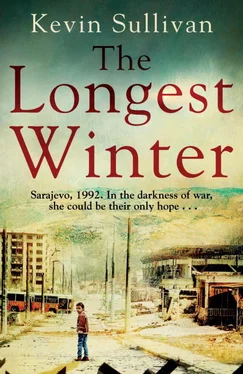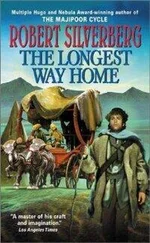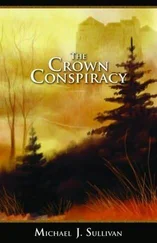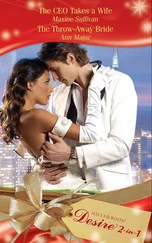Brad drove up the ramp at speed. No shots.
It took him five minutes to reach the Delegates’ Club. There were no familiar cars parked outside, none of the other armoured Land Rovers, or soft-covered cars plastered with press markings. The story was still not out. ‘Thank you!’ he told the dashboard again. He swung across the middle of the road and parked on the pavement in front of the guard post.
‘What’s your name?’ the guard asked – the same guard who had asked the same question an hour earlier.
He waited outside while the soldier went through his routine, lumbering back to the guard post and winding up the telephone, then barking into the mouthpiece in guttural Arabic and waiting nonchalantly for a reply. Brad paced up and down. It was well below freezing. He had begun to button up his coat just as the guard invited him to come inside. As they walked through the garden he felt the cold air cling to his body.
Major Thomson met him on the porch.
‘Bad news, I hear,’ Brad said.
‘You hear right.’ He grimaced a little.
‘Is Jim around?’
‘He’s gone to the PTT. The minister’s in the hospital there.’
‘His condition?’
The major gave him a gloomy look and remained silent. Brad guessed he’d been told not to give out any more unconfirmed reports.
‘What happened?’
‘Where?’
‘On the Airport Road.’
‘He was shot.’
‘Is there anything else you can add?’ Brad decided not to hang around. Danby was worth an extended visit, but not Thomson. ‘I’m going to the presidency. I’d like to hear your side of things before I send my story.’
‘We don’t have a side,’ Thomson said, quickly and with a note of triumph in his voice. After a moment, he went on. ‘The General will be back in about an hour. I expect he’ll make a statement tonight.’
‘Who else has been here?’
‘Journalists?’
‘Yeah.’
‘Only you.’
On the way to the presidency Brad had the option of switching on the headlights and driving fast, or moving slowly in the dark. He kept the headlights on. At the presidency he ran over the snow to the entrance at the rear of the building. As he turned the corner for the last twenty-yard dash to the door he felt nervous and exposed. He was tempting fate making this particular dash twice in one night.
There was a little cubicle just inside the entrance, a glass-fronted box with an opening for identity documents to be passed through, a small table, an oil heater and a chair. Earlier, the guard had sat in the cubicle, protected from the cold. Now he was standing by the stairs. He stopped Brad.
Brad presented his press pass and the guard said something Brad didn’t understand. Seeing that he didn’t understand, the guard started to climb the stairs, still holding the card. Brad followed. When they reached the top of the stairs the card was given to another soldier.
‘Who you want see?’ the second soldier asked.
Brad told him that he was expected by the Professor.
‘Not tonight,’ the soldier said. He looked at Brad, surprisingly confident that the Professor wasn’t going to meet any journalists. Brad said again that he was expected. He wasn’t expected but he knew the soldier would have to check, and he thought someone would agree to speak to him.
The soldier went into an anteroom and made a telephone call. After waiting several seconds he read Brad’s name aloud from the identity card. He made a better job of this than the Egyptian guard had done at the Delegates’ Club. There was another pause and then the soldier spoke very briefly into the receiver. Brad knew he’d been told to let him in.
‘There’s a meeting,’ the soldier said. His English was suddenly better. ‘You can’t see anyone now.’
‘I’ll wait.’
The man shrugged and returned the card. He pointed to the metal detector at the top of the stairs and indicated that Brad should walk through it.
Through the metal detector he began to move past the three sentries in the lobby, the same ones who had been there forty minutes before, but one of the sentries stepped forward and stood in his way.
‘Wait here,’ he said politely.
Brad said he wanted to go back to the Professor’s office.
‘Wait here,’ the soldier said again, still polite.
Brad sat on a bench and took out a packet of Marlboro. He lit a cigarette and began to smoke. Then he noticed that the three soldiers were watching him. He proffered the packet. The youngest-looking of the three stepped forward and took two cigarettes. He gave one to his colleague. The third soldier stayed on the other side of the lobby watching Brad morosely.
After a few minutes of silence, during which they smoked and looked around, the soldier who had accepted the cigarettes came over to Brad and said, ‘Where are you from?’
‘Boston, in the United States.’
‘Ah, United States,’ he said. He returned to the others. They spoke together and glanced at Brad.
Brad finished his cigarette and looked at his watch. He wasn’t sure if it was worth waiting. He was becoming accustomed to the relative warmth of the corridor. He glanced up at the gilt ceiling then looked across the lobby at the red curtains and watched the soldiers.
They stood in a tight knot in the middle of the lobby. The soldier who had not smoked was explaining something to the others, miming a series of events. He removed the pistol from his belt, slowly pushed the second soldier out of the way and pointed his gun at the third. Then he made a sound with his lips, like a child imitating the noise of a gunshot. The other two nodded. That’s how it was, they said. The first soldier put the gun back in his holster. They spoke in whispers.
Deciding that to wait any longer would serve no purpose, Brad stood up, but before he had turned to walk back through the metal detector he heard voices at the other end of the corridor. Half a dozen men were speaking loudly. They were moving towards the lobby, coming from the direction of the Professor’s office. The guards made a cordon, placing themselves between Brad and the small procession of politicians who now came into view. The Professor was at the front; several Cabinet members followed.
The Professor saw Brad and came over.
‘They’ve killed him!’ he said. ‘This is what they do!’ he continued with unusually resonant indignation. ‘This is their peace initiative!’
He walked away while Brad was still scribbling.
Brad recognised a minister he’d interviewed several times. He called to him over the shoulder of one of the soldiers. ‘Do you have a statement?’
The man looked at him absently and then approached. He said something to one of the soldiers and then to Brad in English, ‘Say nothing. Report nothing. His family must be informed first.’
The minister spoke again to the soldier, who looked at Brad and then nodded to the minister, who turned abruptly and walked away. Brad started to leave, but two of the soldiers moved quickly between him and the metal detector.
‘You wait here thirty minutes,’ the English-speaking soldier said.
‘No, I have to go now!’ Brad tried to walk round, but the soldier moved quickly and placed himself in the way again.
‘Sit down,’ the soldier said. He looked at his watch. ‘Thirty minutes,’ he repeated.
The minutes were silent and slow. Brad had the news but all he could do was wait. Twenty minutes went by before he saw Alija coming along the corridor towards the lobby. He shouted to him.
‘These guys have been ordered to keep me here,’ Brad said, listening to the whining tone of his own voice. ‘They’ve been told to keep me here for thirty minutes.’ Alija looked at him, expressionless. ‘I can understand the need to inform the minister’s family first,’ Brad went on quickly, ‘but by the time I get back to my office thirty minutes will have passed.’ Brad spoke into the vacuum of Alija’s expression. ‘You’ve got to tell them to let me go.’
Читать дальше












